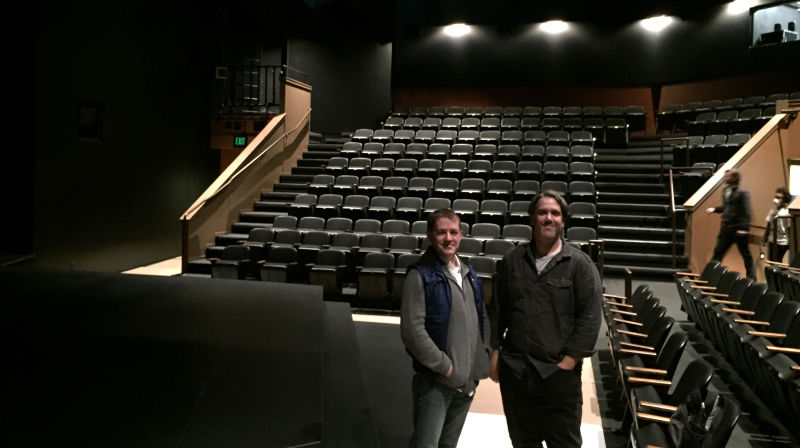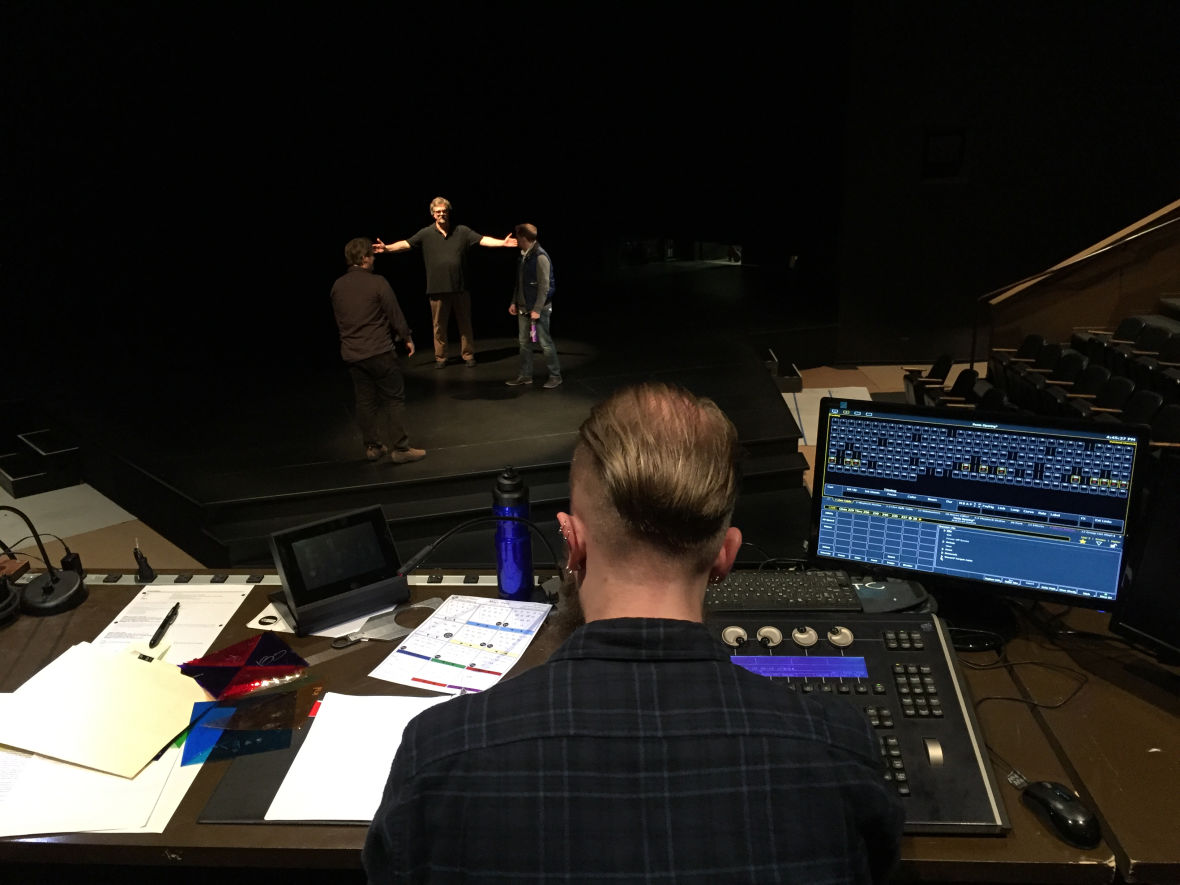Berkeley Repertory Theatre’s Thrust stage, named for the way it juts into the audience, doesn’t look that different from its original incarnation, despite undergoing $7 million in renovations over the last nine months.
But there are changes that are difficult to miss for longtime attendees. First, it’s been renamed the Peet’s Theatre, to honor a partnership with the Berkeley coffee company, now owned by a German investment firm, and the room’s 400 seats are more comfortable and less squeaky.
“We actually found the original person that built our seats,” said Production Manager Peter Dean, “a gentleman by the name of Smokey, who took the original seats out, restuffed them, and they actually look brand new.”
But the big changes, Dean said during a recent visit, are hidden in the walls: upgrades to the electrical system of a theater that originally opened in 1980. And Dean says audiences should be able to hear the most important change, the installation of a Constellation Acoustic System from Berkeley’s Meyer Sound.
“Characters will be able to face upstage,” Dean said, “and speak in a whisper volume, and still be heard clear as day out in the house.”



